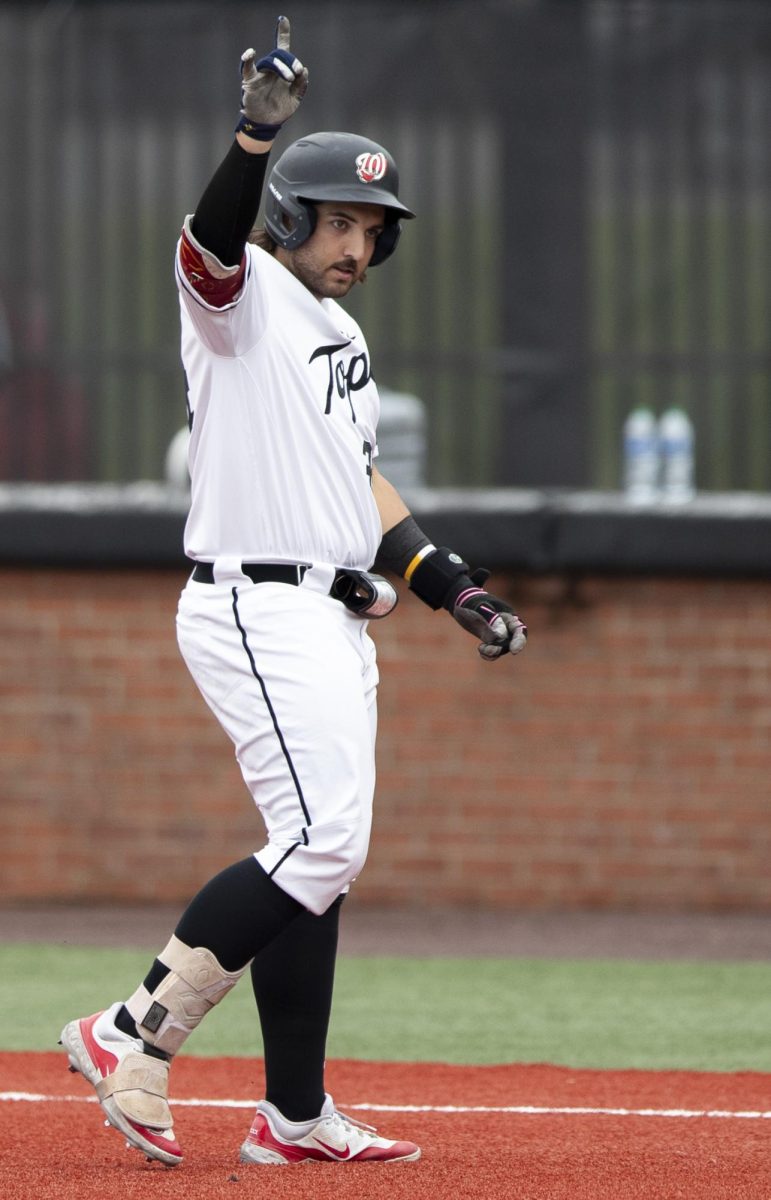NCAA review begins
February 18, 2003
Say “ah,” Hilltopper athletics.
Western has begun a recertification program for its athletics department, a move the NCAA requires its member schools to complete every 10 years.
The recertification steering committee will look at the institutional control of Western’s athletics programs, the academic standards of its athletes, the financial health of the department and other guidelines set by the NCAA, said General Counsel Deborah Wilkins, the committee’s chairwoman.
More than 30 faculty, staff, students and community members are serving on the steering committee and its four subcommittees.
Athletics Director Wood Selig said he welcomes the in-depth look into his department.
“I would equate it with going to a physician and getting a physical,” Selig said. “You may not enjoy the process, but what you hope to come out with is a clean bill of health.”
The committee’s final report will be sent to a peer review group in November, Wilkins said. That group, which will consist of officials from several universities, will visit the campus next February.
“We’ve given ourselves plenty of time to do the process,” Wilkins said.
If some areas do not meet the NCAA’s standards, the committee will make recommendations on ways to improve them, Wilkins said. Western’s committee will also decide whether the athletics department should be certified.
A “not certified” outcome is unlikely, said James Brown, a theatre professor and the NCAA faculty athletics representative.
“I think they’ll find that Western is doing a very good job,” said Brown, who is also chairman of the academic integrity subcommittee. “Our athletes have a higher graduation rate than the student body in general already, so obviously, that’s something we’re going to be proud to report.”
Western was one of the first colleges to be certified, Wilkins said. The university volunteered to undergo the process 10 years ago, before the NCAA made certification mandatory.
Certification followed, but the university had to develop plans to improve gender equity and minority opportunities, Wilkins said. Those concerns were addressed by adding three women’s sports and adopting the university’s equal opportunity and affirmative action plan in 1995.
A review is also required five years after the certification is completed, Wilkins said.
Brown said the process may be cumbersome, but it is needed for the NCAA to have fair competition.
“We certainly have loyal fans, but the sports program does not drive this university as it does at some schools,” Brown said. “So I’m not anticipating any kind of serious problems at all.”
Selig agreed the accreditation process will add work for those involved. He said the process is useful for college athletics programs because it allows them to identify problems.
“I think it’s a way that everyone can operate first-class intercollegiate programs,” Selig said. “This benefits all schools, no matter what your size or competitive level might be.”
Reach Joseph Lord at [email protected].


















![Students cheer for Senator at Large Jaden Marshall after being announced as the Intercultural Student Engagement Center Senator for the 24th Senate on Wednesday, April 17 in the Senate Chamber in DSU. Ive done everything in my power, Ive said it 100 times, to be for the students, Marshall said. So, not only to win, but to hear that reaction for me by the other students is just something that shows people actually care about me [and] really support me.](https://wkuherald.com/wp-content/uploads/2024/04/jadenmarshall-600x422.jpg)




